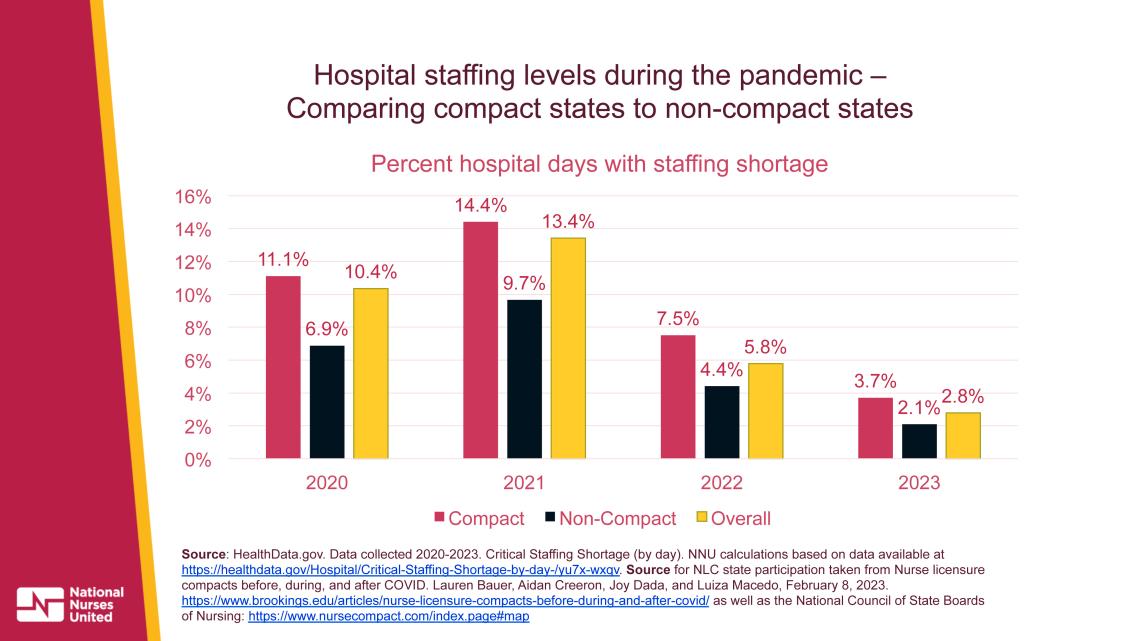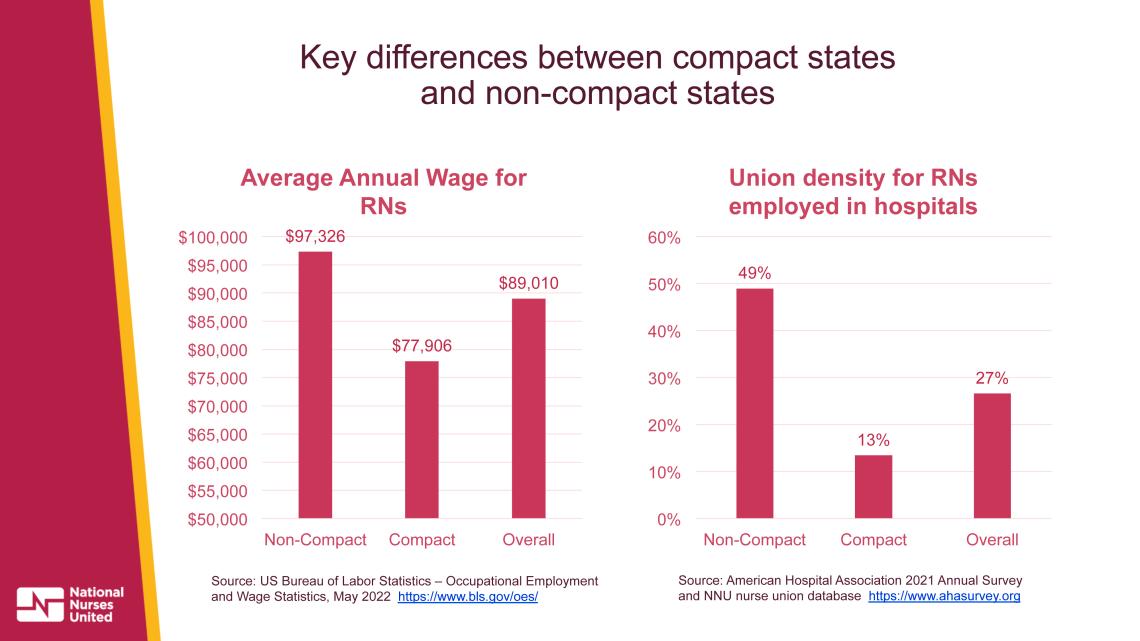Lowering Nurse Licensing Standards Won’t Solve the Nurse Staffing Crisis — But Could Harm Patient Care

As we look ahead in 2024 to the biggest challenges that face our profession, we expect that safe staffing will continue to be at the top of the list. While nurses work overtime on solutions to the nurse staffing crisis, federal, state and local governments continue to entertain the hospital industry’s preferred short-term “solutions” and calls for “flexibility” that don’t solve the nurse staffing crisis.
Not a Solution for Understaffing
The Nursing Licensure Compact (NLC) is one of the proposals for flexibility that is likely to come up again this year in the New York Legislature. NYSNA nurses helped defeat this proposal in last year’s state budget, because it’s another nonsolution that could lead to lower standards for New York’s patients.
The NLC is an interstate agreement that allows nurses to hold multistate licenses to practice in other Compact states. Several states started the NLC in 2000, and 40 states have joined. Although it may reduce some paperwork for nurses working in multiple states, it has not been proven to lead to a greater supply of nurses or decrease nurse vacancies, especially where there are critical staffing shortages.
Research that the National Nurses United (NNU) compiled shows that belonging to the NLC has little impact on nurses staffing levels at hospitals, while issues such as wages and having union representation are likely more important factors. U.S. Department of Health (DOH) data shows that from January 2020 to August 2023, Compact states experienced a higher percentage of critical staffing shortage days than non-Compact states. An American Hospital Association Annual Survey showed that registered nurse vacancy rates are actually higher in Compact states. A likely reason is that wages and union density are both significantly lower in Compact states.


Defending Our Nursing Practice
Joining the NLC will not fix New York’s staffing crisis, and there are other disadvantages as well. States that join the Compact give up a certain amount of sovereignty to regulate the nursing profession. This can lead to a reduction in licensure standards because Compact states must agree to recognize the licenses granted to registered nurses (RNs) in other Compact states, even when those standards are lower. For example, New York licensure requires continuing education in areas such as infection control and identification and treatment of child abuse, but other states may not require any continuing education.
The Compact can also limit diversity by restricting a state’s ability to allow alternative pathways to licensure, such as LPN-to-RN programs and other options for licensure, which can be very effective at bringing underrepresented groups into the nursing profession.
New York’s licensing fees currently fund the state’s nursing education department, but joining the Compact would rob our education department, which funds valuable programs like Statewide Peer Assistance for Nurses of valuable resources.
Advocating for Real Solutions
When the NLC comes up again in the Legislature, we need to push back — and push for real solutions to address the nurse staffing crisis. There is little evidence that joining the NLC will help, but there is strong evidence that improving wages and working conditions and giving nurses a voice on the job will.
Real solutions to the staffing crisis should focus on nurse recruitment and retention. Fair funding for public and safety-net hospitals will help those facilities hire more nurses. New York can also do more to invest in educating and training the next generation of nurses. Funding for nursing education was not increased in last year’s budget, although there is great need to increase nursing tuition support, loan forgiveness and nursing school teaching capacity to meet the demand of students who want to enter the nursing field.
Real solutions also include improving conditions to keep nurses at the bedside. Nurses deserve good wages and benefits and safe working conditions, including safe staffing. The New York State DOH needs to enforce our staffing laws and ensure healthcare facilities always follow safe staffing standards.
There’s a reason that NYSNA along with NNU and other healthcare unions that represent frontline workers reject the NLC — we have studied the evidence. We know that the fight to implement real solutions to the staffing crisis takes time and effort, and we reject the false solutions like the NLC that the hospital industry continues to push.